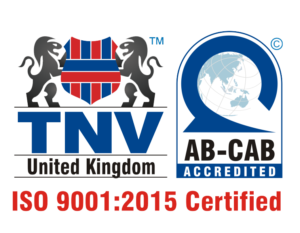Alternative Dispute Resolution in Timeshare Conflicts: Mediation & Arbitration in New York Explained
Navigating timeshare conflicts can feel overwhelming, especially when emotions and financial stakes run high. In New York, alternative dispute resolution (ADR) methods like mediation and arbitration have become valuable tools for resolving these disputes without the lengthy, costly process of going to court. But what exactly do these approaches involve, and how can they help?
We’ve seen how ADR offers a more collaborative and efficient way to address disagreements between timeshare owners and companies. Mediation fosters open communication, while arbitration provides a binding resolution, each tailored to the unique needs of the parties involved. Just as precision instruments like rotational rheometers help ensure accuracy in scientific processes, understanding these legal options empowers us to make informed decisions and find solutions that work.
Understanding Alternative Dispute Resolution (ADR)
ADR provides structured methods to resolve disputes outside courts. Mediation and arbitration are ADR’s primary forms for timeshare conflicts. For those seeking guidance on timeshare disputes and cancellations, resources like https://howtocancelmytimeshare.com/ offer valuable insights and assistance in navigating the process effectively.
What Is ADR?
ADR refers to resolving disputes through negotiation-focused processes like mediation or arbitration, avoiding litigation. It emphasizes cost savings and confidentiality.
Importance of ADR in Timeshare Conflicts
ADR minimizes delays and high legal fees. It supports customized solutions that address unique disagreements in timeshare arrangements.
Mediation vs. Arbitration in ADR Methods
| Aspect | Mediation | Arbitration |
|---|---|---|
| Resolution Type | Non-binding, voluntary | Binding, enforceable |
| Neutral Role | Facilitator of communication | Decision-maker, like a judge |
| Flexibility | Parties control outcomes | Arbitrator controls final decisions |
| Process Length | Shorter due to open communication | Slightly longer but still efficient |
Mediation encourages dialogue, aiming for mutual agreement. Arbitration, however, delivers verdicts enforceable by law.
How ADR Saves Time and Costs
ADR avoids the protracted timelines of court cases. Mediation achieves resolution in 60-90 days on average. Arbitration proceedings usually conclude in under six months.
ADR Services in New York
New York has established ADR centers and private firms specializing in timeshare disputes. Groups like the New York State Unified Court System provide resources for mediation and arbitration (NYCourts.gov).
Mediation in Timeshare Conflicts
Mediation serves as a collaborative pathway to resolving timeshare conflicts in New York. This non-binding process allows parties to work together with a neutral mediator to achieve mutual solutions efficiently.
How Mediation Works
A trained mediator facilitates discussions, focusing on both parties’ interests. Mediators guide conversations without enforcing decisions, ensuring voluntary agreements.
Benefits of Mediation for Timeshare Owners
Mediation reduces costs, sanctions private resolutions, and fosters tailored solutions that meet specific needs. It preserves relationships and avoids adversarial litigation.
Mediation vs. Litigation: Key Differences
| Factor | Mediation | Litigation |
|---|---|---|
| Cost | Typically lower | Higher due to court processes |
| Timeframe | Usually 60-90 days | Months or years |
| Confidentiality | Fully private | Public court records |
| Outcome | Voluntary and non-binding | Binding, decided by court |
Choosing Mediation Services in New York
Mediation services are widely accessible, with options such as the New York State Unified Court System’s ADR programs and private mediation firms. Local resources include certified mediation centers like the New York Peace Institute and National Association for Community Mediation (NAFCM).
Why Mediation Suits Timeshare Conflicts
Timeshare disputes often involve ongoing relationships, whether between owners or with management companies. Mediation maintains collaboration while addressing shared interests efficiently.
Arbitration as a Resolution Method
Arbitration, a structured and binding approach to resolving timeshare disputes, offers a formal process outside the courtroom. This method is often favored for its enforceable decisions and streamlined procedures.
The Arbitration Process Explained
Parties present their cases to a neutral arbitrator, who reviews evidence and arguments before making a final decision. These decisions are legally binding and enforceable under the Federal Arbitration Act (FAA). In New York, arbitration services are accessible through the American Arbitration Association (AAA) and private providers specializing in timeshare conflicts.
Key Benefits and Challenges of Arbitration
Arbitration reduces time and costs compared to litigation but limits appeal opportunities. It’s private, fast, and supports equitable solutions. However, once the arbitrator makes a decision, parties cannot pursue further legal recourse unless procedural errors occur.
| Aspect | Arbitration | Litigation |
|---|---|---|
| Cost | Lower due to simplified processes | Higher due to court fees and attorney costs |
| Timeframe | Usually within 4-6 months | Often exceeds one year |
| Binding Nature | Decisions are final and enforceable | Outcomes can be appealed |
| Privacy | Private hearings | Public records |
Arbitration Centers in New York
New York hosts reputable arbitration services such as those offered by the AAA and National Arbitration and Mediation (NAM). These centers ensure arbitrators experienced in timeshare disputes provide impartial oversight, supporting fair outcomes. More details can be found on their official websites, such as ADR.org or NAMadr.com.
When Arbitration Works Best
Arbitration benefits cases requiring enforceable resolutions, especially those with significant financial stakes or legal complexities. It serves well when parties need binding decisions to conclude disputes efficiently. However, parties seeking to preserve flexibility or relationships may prefer mediation.
ADR in New York: Legal Framework and Processes
New York’s legal framework supports alternative dispute resolution (ADR) for efficiently resolving timeshare conflicts. State laws regulate mediation and arbitration to provide clarity and enforceability.
State-Specific Regulations for Timeshare Disputes
New York imposes clear rules governing mediation and arbitration under the Civil Practice Law and Rules (CPLR). The Uniform Arbitration Act applies specifically to arbitration agreements, ensuring legal enforceability. Additionally, consumer protection laws overseen by the New York Attorney General safeguard timeshare buyers against fraudulent practices, complementing ADR efforts.
Key Factors for New Yorkers Using ADR
New Yorkers benefit from ADR by avoiding lengthy litigation while maintaining legal backing. State regulations ensure privacy during proceedings, and parties can choose neutral mediators or arbitrators familiar with local laws. It’s essential for residents to check their agreements for a built-in ADR clause when disputes arise.
Comparing ADR Processes in Timeshare Conflicts
ADR processes vary by flexibility, cost, and resolution speed. Below is a comparison of key aspects:
| Process | Binding | Timeframe | Cost | Privacy |
|---|---|---|---|---|
| Mediation | No | 60-90 days | Lower than litigation | Private sessions |
| Arbitration | Yes | Under 6 months | Lower than litigation | Confidential |
Finding ADR Services in New York
New York ADR services include public and private options. The New York State Unified Court System offers mediation programs, while the American Arbitration Association (AAA) and National Arbitration and Mediation (NAM) provide arbitration for timeshare disputes. Each organization complies with New York’s ADR standards, offering trained professionals to help resolve conflicts. External resources like nyscourts.gov provide additional details.
Choosing Between Mediation and Arbitration
Mediation and arbitration offer distinct approaches for resolving timeshare conflicts. Understanding their differences ensures more informed decisions tailored to the specific needs of the dispute.
Factors to Consider
Key factors include the desired level of control, enforceability of outcomes, and privacy. Mediation preserves flexibility and relationships, while arbitration delivers binding solutions. Parties should assess whether the conflict benefits more from collaboration or an enforceable decision.
Cost and Time Comparison
Mediation generally costs less, with fees often split between parties, and resolves disputes within 60-90 days. Arbitration tends to be costlier due to arbitrators’ fees but resolves cases in under six months, offering a faster alternative to litigation.
| Criteria | Mediation | Arbitration |
|---|---|---|
| Cost (approx.) | $1,500-$5,000 | $5,000-$15,000+ |
| Timeframe | 60-90 days | Under six months |
| Outcome Enforceability | Non-binding | Binding |
| Privacy Level | High | High |
Legal Complexity and Outcomes
For disputes involving legal complexities, arbitration ensures enforceable resolutions based on established legal protocols. Mediation, in contrast, focuses on mutual resolution rather than legal arguments, benefiting those seeking a cooperative outcome.
Availability of ADR Services in New York
New York offers ADR options through the New York State Unified Court System’s mediation programs and private organizations like the American Arbitration Association (AAA) and National Arbitration and Mediation (NAM). Both provide accessible services that meet state ADR standards.
Learn more about ADR’s framework and implementation through the New York State Unified Court System’s ADR resources or organizations like AAA for detailed process guides.
Conclusion
Navigating timeshare conflicts can be overwhelming, but alternative dispute resolution offers practical and efficient solutions. Whether through the collaborative approach of mediation or the structured finality of arbitration, ADR provides valuable options tailored to individual needs.
By understanding these methods and leveraging the resources available in New York, we can resolve disputes effectively while saving time, money, and stress. Choosing the right path ensures a smoother resolution process and helps preserve relationships or achieve enforceable outcomes when needed.




